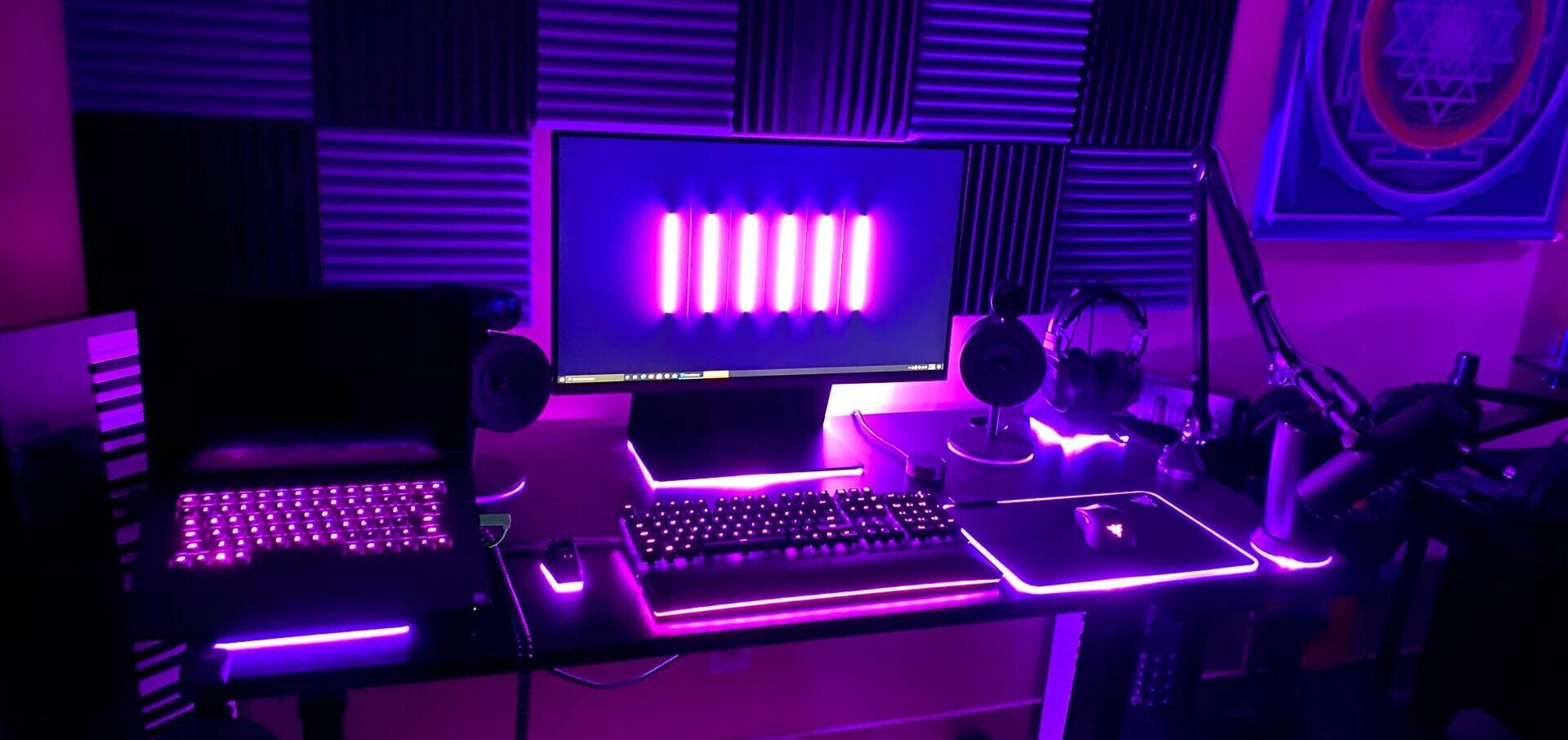Earning Your Music Royalties
A minimum of 4 different streams of royalties are generated from 1 single stream-play of your song on platforms like Spotify. These different royalties streams are distributed to different rights holders of your music, for up-coming-artists these different rights holders are usually the same person and most music creators are unaware the different allocations of revenue exists. In 2021, digital streaming platforms owed songwriters from around the world in over $424 million in so-called unmatched royalties also known as 'black box royalties'. The global value of these royalty black boxes is estimated to be $2.5 billion.
So all in all with any song you are the author or creator of, a single stream will generate multiple royalty streams, which is revenue paid out for the use of your song and owed to you the copyright owner. To stress my point further, YOUR MUSIC MAKES MONEY!!
Want to know if your owed royalties? Simply sign up and email our team. We help artists collect royalties owed far back as 2 to 3years.
Again, YOUR MUSIC IS GENERATING MONEY!!
Important to note if your music is missing essential metadata, your music will still generate royalties however until crucial identifying tags are connected to you as the rightful owner of that piece of music, they would not know were to allocate these royalties to. Also called retroactive royalties, will wait for only a short period of time until claimed before being black boxed and irretrievable.
TYPES OF ROYALTIES
Public Performance | Digital performance |
Interactive Streaming | Non-Interactive Streaming |
Mechanical | Reproduction |
Neighbouring Royalties | Distribution Royalties |
Micro-Sync Royalties | Digital Downloads |
Digital Print Royalties | Retroactive Royalties |
Streaming Royalties
Digital Service Providers (DSPs) produce streaming royalties generated from your music stream-plays made on Spotify, Amazon music, iTunes, Tidal, Deezer, Google music, etc... However when music is streamed on these platforms it can generate a possible 6 different types of royalties, meaning a single stream to your song will generate a minimum of at least 3 different royalty streams; a Performance royalty, a Mechanical and a Master sound royalty. These are all paid to different entities and other societies representing you, rather than directly to you as the songs actual rights holder.
If your music is distributed using third parties such as a digital distributor, they only handle sound recording royalties when your music is streamed. You are also owed royalties from other streams of royalties. DSPs pay these royalties to performing rights organisations (PRO) and collection societies (CMO) all around the world.
- Public Performance
- Reproduction
- Derivatives
- Distribution
- Public Display
- Digital Transmission
So it’s definitely not enough to just sign up to a PRO or a distributor alone, if you want to receive 100% of your music royalty streams. You need to acquire all appropriate legal licenses that grants you authority to collect some of these royalties. And because a song has several different rights that define separate terms specific royalties, accurate metadata is essential.
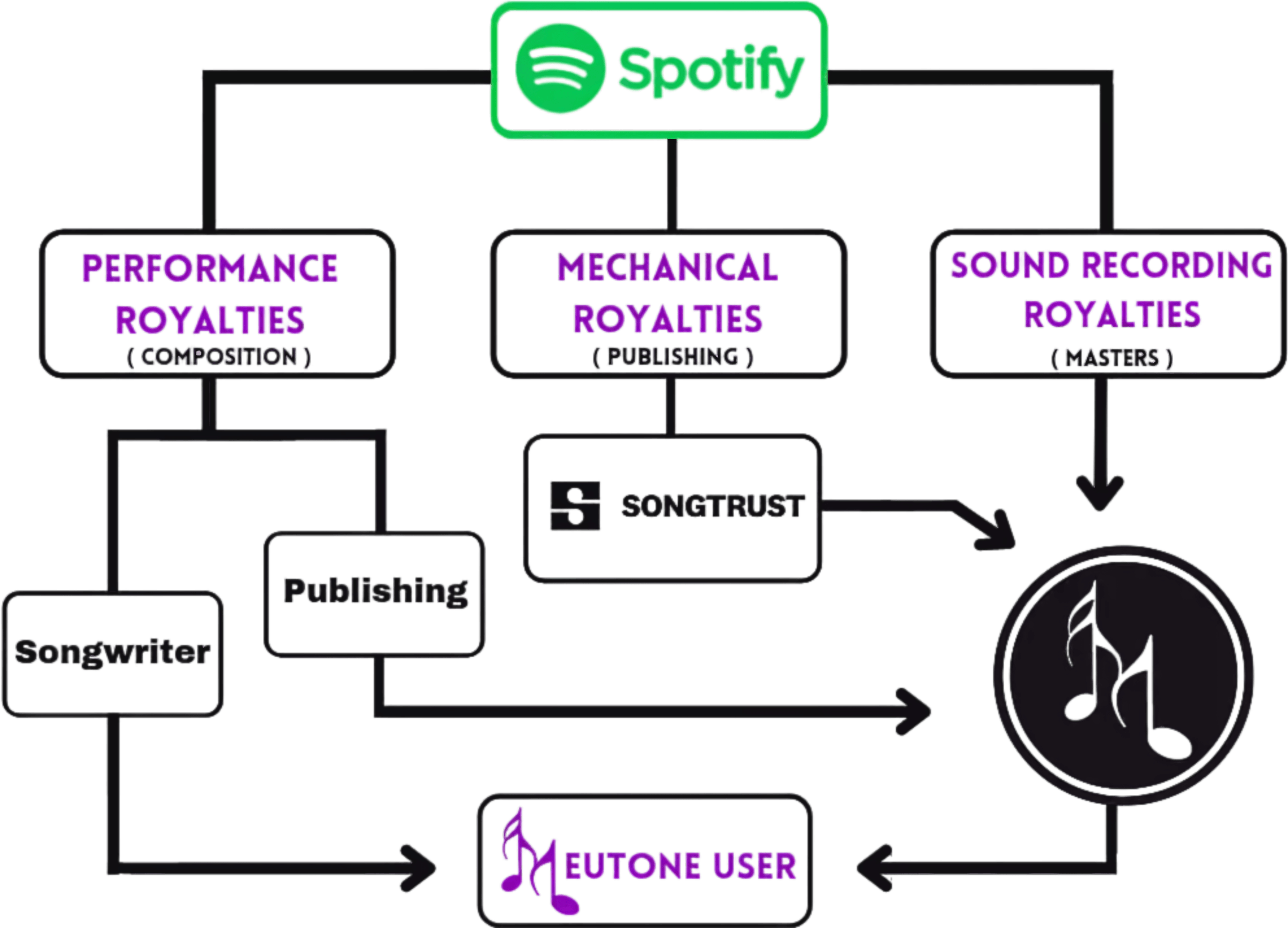
* Standard digital music distributors will only collect distribution (Master Sound Recording) royalties on behalf of their users.
Performance Royalties
Your performance royalties are collected by Performing Rights Organisations (PROs) and are paid out to composition rights holders; whom are writers and publishers of your song. This includes your music being broadcasted through radio airplays, being played in clubs, bars and other establishments, small businesses like fitness gyms or a clothing store as well as online streaming platforms like Spotify, Tidal and any other digital service providers are all performing royalties that are generated from your music. However there are a few types and differently named reperforming royalties, still with the same principal of a performance.
Performance - Played in businesses or live performance on stage.
Public Performance - Streamed on platforms such as DSPs.
Digital Performance - Non-interactive streaming or online digital broadcasting.
Performance/Tour Set-lists
If you have any live performances, gigs or events where you have performed your music, they too generate royalties. We include another free feature to multiple music services through our portal called Performance Set-lists. Members can report event details and submit live performances when on tour, anywhere around the globe, to ensure you don't miss out these performance royalties as well. We have these royalties collected on your behalf and are paid directly to you every annually quarter.
Mechanical Royalties
Mechanical royalties are generated each time your song is physically or digitally reproduced. For example, (a reproduction of your single pressed into a CD which then gets sold in a store) these mechanical royalties are distributed back to whoever owns your songs publishing rights (a licensed publishing entity). Similar to paying reproduction royalties to who holds your songs masters, for its sound recording or original production of your song, usually held by your label or producer of that track. So whenever your song is downloaded online (like a digital sale of your song on iTunes) it is a reproduction of your song from its first original production in the studio.
Micro-Synchronization Royalties
Micro-synchronization royalties are generated when your music's audio track is being used together with a visual work, music video clips of course. These video streams for example are on platforms like YouTube, TikTok and social media platforms like Instagram and Facebook stories all of these too generate royalties. Similar to synchronization royalties when your music is being used in television programs or jingles but on a micro-level. Regardless all income is welcomed when wanting to use your music. Micro-syncs also produce several different royalty streams, generating both a public performance royalty and a mechanical, as well as sound recording revenue, besides being the uploaded monetizing your channel receiving add revenue. Even if you choose to monetize your channel, you will still have to meet YouTube's criteria with their YouTube Partner Program.
Note: Your music will not earn any revenue or royalties if ads are not placed on your videos or your content is watched by a subscribed user.
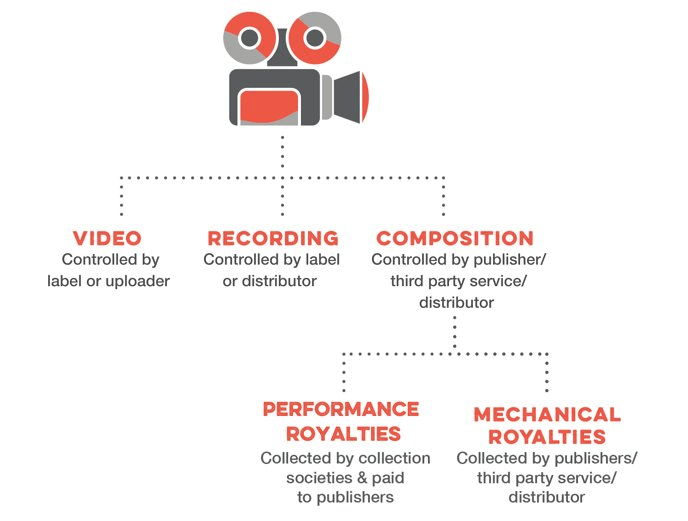
However micro-sync royalties from music placed on YouTube only can be generated inside the US and are only paid out in the USA. Meaning you most probably won't be receiving these royalties unless your works are affiliated with a PRO overseas like BMI or ASCAP, you have a sub-publisher from the US administering your works on behalf. If not and that is the very case, where you are not signed with a publicist, don't worry MEUTONE will collect these royalties generated in the US for you. So an overall review on micro-syncs royalties; just having your video placed on your channel does not mean you are receiving micro-syncs, you first have to be affiliated with a US PRO and then register your music works with these collection societies.
Having lyrics to your music displayed also requires a different license separate from licenses to play your music, also meaning another stream of royalties owed to you. These royalties are call digital lyric sheet music or digital sheet royalties, that can conveniently run alongside as your music is streamed, adding extra for revenue for artists. Your lyrics can also be synced along side your music playing in Facebook and Instagram stories, as well as all streaming platforms your music is distributed too. We work with Musixmatch a real easy and good way for artists to display lyrics with style.
Neighbouring Royalties
Neighbouring royalties are some what like performance royalties on the composition side generated from terrestrial radio broadcasting, in other words your music broadcasted and played on your local FM. In this case it is digital online radio as well as podcasts. A form of what's known as non-interactive streaming. Unlike your standard Spotify stream, where the listening user is in control of the stream play, where you can stop and play a track or selecting a specific track on your play-list at will, this is what's known as you interacting with streams AKA (interactive streaming). Non-interactive streaming produces neighbouring royalties and digital terrestrial royalties, A performance royalty for rights holders on the Master side, from platforms like Pandora and online web-based digital radio. We work together with Recorded Music NZ registering users whom are the master rights holder of music we distribute. We also collect with SoundExchange - (USA) and PPL- (U.K), what's known as digital performing royalties in the US as they do not recognize neighbouring royalties. More information our services page..
We work with Recorded Music NZ to collect neighbouring royalties here locally and aboard with Recorded Music NZ's bilateral agreement with international societies like Australian PPCA These sound recording royalties are collected on behalf recording of artists or rights holder on the Masters side of your recorded sound track. From online and terrestrial radio, broadcasted media e.g. Television, Music played in businesses or in the community.
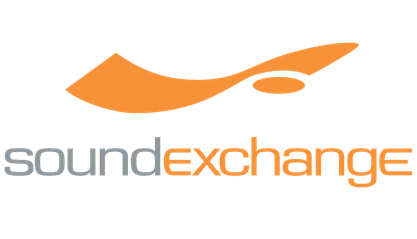
Digital Performance (non-interactive streaming)
SoundExchange is the US equivalent to what's known as neighbouring royalties paid out master rights holders. Instead called digital streaming royalties for non-interactive streaming. These royalties are generated only in the US when on digital platforms such as Pandora, used in podcasts or online digital radio. Similar to being broadcast on your local terrestrial radio like Flava FM, etc.. but online through the internet. We also collect these royalties.
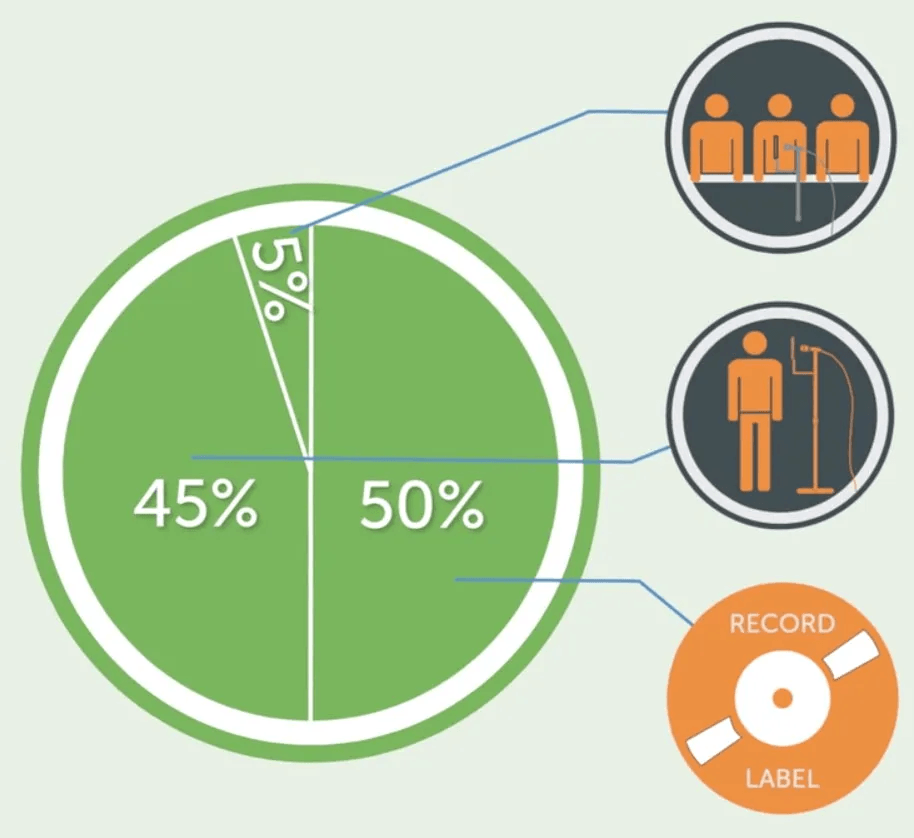
50% Master Rights Holder
( SoundExchange )
45% Featured Performing Artist
( SoundExchange )
5% Non-featured Artists
( SAG-AFTRA )
Is a non-profit organisation that also collects royalties from SoundExchange and are allocated 5% form digital streaming royalties for non-featuring artists. These individuals would be producers, backup vocals or musicians that played a specific melody or wrote a specific part to your songs composites, but are not necessarily part of your band/group and would is just a one off contribute to your song, and at other times depending on your split-sheets. However if there are no other non-featuring artists or you are the only other contribute to your sound track then these royalties are yours and we will have these collected for you as well.
Retroactive Royalties
If you have music works already published online on music platforms such as Spotify or Shazam or even YouTube, etc.. clocking up stream views where you haven't affiliated with a PRO and registered your works or have no assigned publicist for your music, you are owed royalties. Even with unregistered songs and incorrect metadata embedded with your sound track, your music is still earning and generating royalties however with no one to allocate these royalties to. We can help you collect these music royalty streams for you. These royalties are called Retroactive royalties and if successful at identifying your songs match, with publishing details of when you uploaded it to iTunes, etc.. we might have a chance to collect all these royalties, if you have not received any yet for your songs use. However they last for a period of usually 2-3 years before you can no longer claim or collect them and are put in what's know as a black box. These unallocated royalties will then be distributed out to the major publishers.
